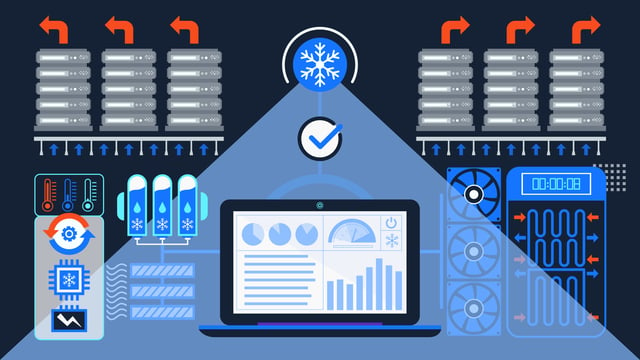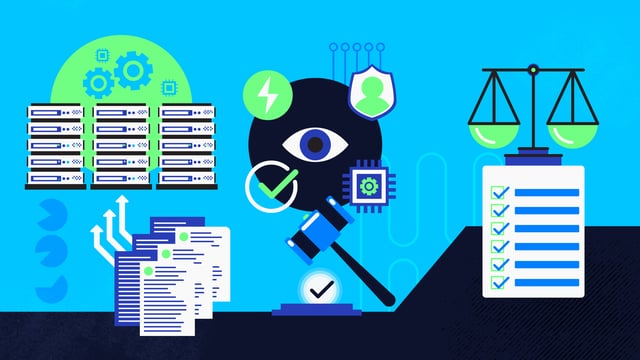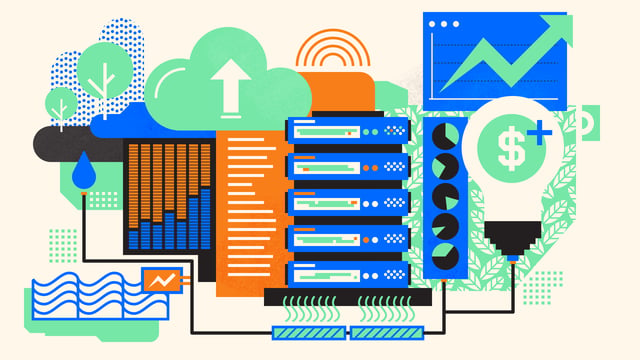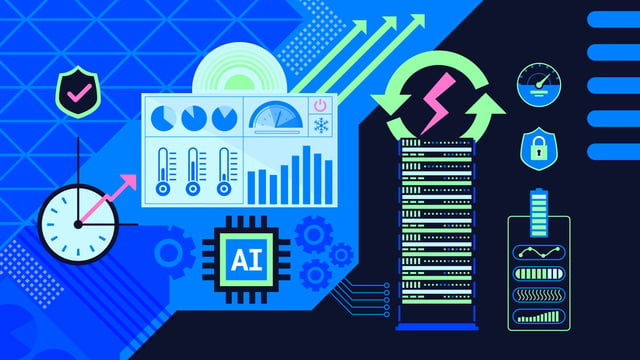Overview
- Data centers are responsible for about 1.5-2% of global energy consumption, which is anticipated to grow up to 8% by 2030 due to increasing computational demands.
- Traditional cooling solutions, such as HVAC systems, are becoming less efficient, as data consumption and heat production increase. Using these systems can lead to up to 40% of a data center's overall energy usage.
- Innovative cooling solutions, such as liquid cooling technologies, can significantly reduce power consumption by up to 50%, according to LiquidStack's CEO Joe Capes. These methods have the potential to revolutionize data center cooling, supported by investments from the U.S. Department of Energy.
- AI-driven self-optimization tools can further enhance energy efficiency by analyzing temperature data and adjusting cooling systems in real time, potentially saving organizations up to $1.7 billion in cooling energy costs globally, according to data center optimization company EkkoSense.
- In addition to technological advancements, organizations are also exploring strategic interventions. Migration to shared cloud infrastructure, focus on specialized hardware, and the implementation of a serverless logging framework can each contribute to reducing data center energy consumption.



